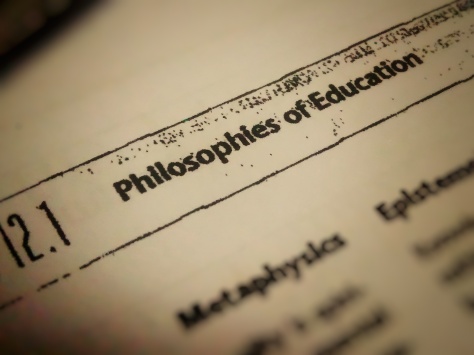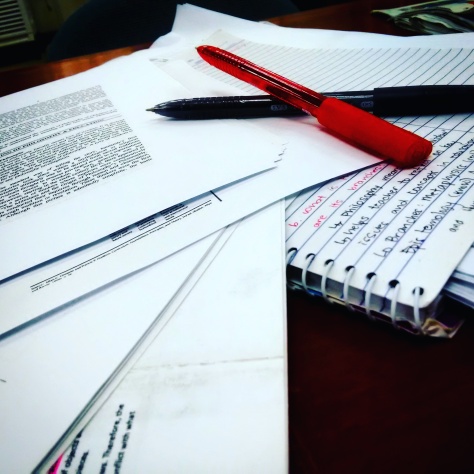Hi guys! Welcome to my last entry for my EDS 101 course. In this ejournal entry, I will express my belief in the: role of the schools; education goals, curriculum, method of instruction, role of teachers and role of students. I also took again the Inventory of Educational Philosophy (IEP) and I will shortly discuss it here, and lastly, I would also express my significant learning from the course.
Role of School
I believe that the school is a place for learning, but it is not only the choice. There are still lot of choices to choose, like alternative and others. You could just have a formal education and perhaps learning through the schools. It will develop (somehow) your mind as you grow. It will also affect your beliefs in education. And it will hone you as a person. In addition, it is also a venue for interaction which is needed by the student to develop their social skills or socialization.
Educational Goals
For me, my educational goal is that; students should be able to transpose their learning into the real world. Education should help the student and also the teachers to promote societal reform. Education should also promote learning by doing and thus, I aim to see schools as one of the agent of giving the student a free will to choose what to experience and learn from it. I believe also on the same aim of Confucius which is to promote benevolence to the students. With this, we could have a better community and thus, a peaceful society.
Curriculum
I believe that teachers should teach the students the good characteristics of a person. The curriculum content must also promote societal reform and that it should also impose the process of problem solving. Having this kind of curriculum could help us transform our society and promote a child-centered education.
Method of Instruction
For me, teaching method should impose group activities, experiments and actual performances. Students must be exposed in the actual societal problem and direct to have a solution on it. Students must also facilitate their own learning by giving them free will, provided that the teacher would also guide them in their decisions. I should state that, as a teacher, it is your responsibility to inculcate into the minds of your students the importance of their decisions and the effect of it in their learning. Thus, it must not only a passive instruction but rather an active interaction.
Role of Teachers
I believe that a teacher must be the guide of the students in their learning. He/she must also help the student to know their important role in having societal reform. Thus, it is the duty of the teacher to really connect the learning instruction to the reality of our world—to the problems that our society are experiencing. I agree also with the belief of Confucius that we, as a teacher should love and understand first our students for them to have their affection and love to their learning.
Role of Students
For me, students should be the center of the education. They must have a freewill in choosing their learning experience. If they want to pursue arts, then go with it, provided that they will help in transforming our society into a better one. They must also be responsible of their learning process and thus, they should be active participants or driver of their learning. They may also seek help from their teachers. I believe that no man is an island and thus, everybody will be needing help from each other.
Result of IEP
My result is just the same, I am still more of a progressivist and social reconstructivist person. This may be the same but my learning had become clear. I have learned many things about my belief and at the same time about other beliefs. It helps me develop all my claims above and thus, it is really crucial to study educational philosophy. Because with this, you can clearly articulate your beliefs about education.
Significant Learning
Lastly, the most significant learning for me is learning more of my educational belief. It is now clear for me the specific claims of progressivism and social reconsrtuctivism. I was also able to have another principle about education which was affected by the claims of Confucius. But this not end here, knowing the specific claims of my educational belief does not mean that it will always be applicable to all my student. I have learn through my case study that a teacher, no matter what his educational philosophy is, must be able to adapt to the learning environment of his/her student since after all, student must be the center of education, not the teacher. With this, I could certainly say that, all my learning about my educational philosophy would be brought as I go along my journey as a prospective teacher and as I practice this passion.
Thank you for reading my ejournal for my course, I hope I was able to share enough my learning from my course. I hope too, that I was able to articulate my beliefs as it was affected by the different educational belief. Passion would drive us into excellence, thus, be passionate in studying more of your educational philosophy. God bless us all.


